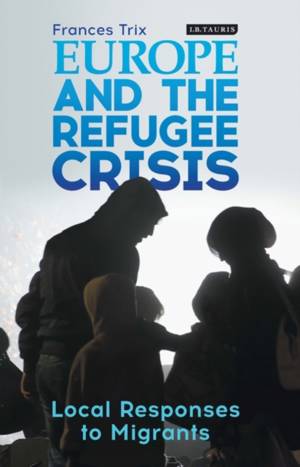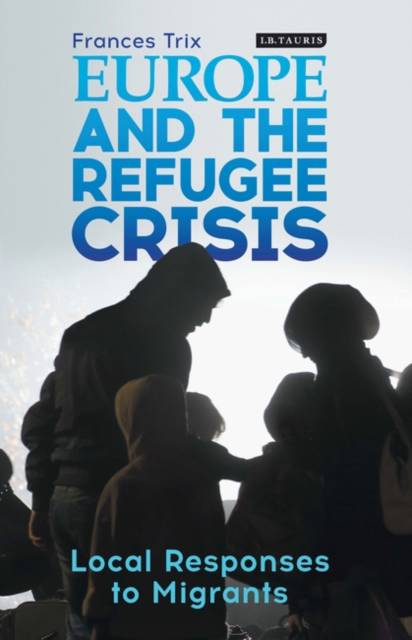
Bedankt voor het vertrouwen het afgelopen jaar! Om jou te bedanken bieden we GRATIS verzending (in België) aan op alles gedurende de hele maand januari.
- Afhalen na 1 uur in een winkel met voorraad
- In januari gratis thuislevering in België
- Ruim aanbod met 7 miljoen producten
Bedankt voor het vertrouwen het afgelopen jaar! Om jou te bedanken bieden we GRATIS verzending (in België) aan op alles gedurende de hele maand januari.
- Afhalen na 1 uur in een winkel met voorraad
- In januari gratis thuislevering in België
- Ruim aanbod met 7 miljoen producten
Zoeken
€ 271,45
+ 542 punten
Uitvoering
Omschrijving
Since 2014, more than 60 million people have been displaced from their homes across the Middle East and Africa. The European Refugee Crisis, as it has come to be known, is now the largest such crisis since the aftermath of World War II. How have local communities reacted to the influx of asylum seekers? And what can we learn from their responses?
Frances Trix here offers a wide-ranging ethnographical and anthropological study of local, individual responses to refugees, from Macedonia to Germany. Based on extensive interviews and field work in Europe, Trix focuses for the first time on the ways that refugees have been welcomed - or not, as the case may be - by various individuals and communities. Her work ranges from Macedonians who established an NGO and lobbied to allow the refugees to use the train, to the police charged with border management; from a German organic food store owner who by her actions set the positive tone in her village, a retired IT manager who coordinates refugee volunteers for his entire town, to the district work organisation director who deems refugees unsuitable for multiple reasons. The material is measured throughout against Trix's anthropological experience, as well as reference to the historical and political contexts in which events are unfolding. This book is essential reading for all those working on the refugee crisis and the prospects - both local and global - for the future.
Frances Trix here offers a wide-ranging ethnographical and anthropological study of local, individual responses to refugees, from Macedonia to Germany. Based on extensive interviews and field work in Europe, Trix focuses for the first time on the ways that refugees have been welcomed - or not, as the case may be - by various individuals and communities. Her work ranges from Macedonians who established an NGO and lobbied to allow the refugees to use the train, to the police charged with border management; from a German organic food store owner who by her actions set the positive tone in her village, a retired IT manager who coordinates refugee volunteers for his entire town, to the district work organisation director who deems refugees unsuitable for multiple reasons. The material is measured throughout against Trix's anthropological experience, as well as reference to the historical and political contexts in which events are unfolding. This book is essential reading for all those working on the refugee crisis and the prospects - both local and global - for the future.
Specificaties
Betrokkenen
- Auteur(s):
- Uitgeverij:
Inhoud
- Aantal bladzijden:
- 288
- Taal:
- Engels
- Reeks:
Eigenschappen
- Productcode (EAN):
- 9781784539931
- Verschijningsdatum:
- 21/02/2019
- Uitvoering:
- Hardcover
- Formaat:
- Genaaid
- Afmetingen:
- 142 mm x 218 mm
- Gewicht:
- 476 g

Alleen bij Standaard Boekhandel
+ 542 punten op je klantenkaart van Standaard Boekhandel
Beoordelingen
We publiceren alleen reviews die voldoen aan de voorwaarden voor reviews. Bekijk onze voorwaarden voor reviews.









